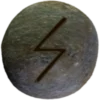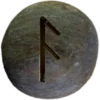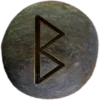Last Updated on June 10, 2025
Table of Contents


Origins and Mythology
Baldur, also spelled Balder or Baldr, is a central figure in Norse mythology. His name is pronounced BAHL-dur in Old Norse and may mean “prince,” “brave,” or “shining one.” He appears in the Poetic Edda and Prose Edda, which are key sources for Norse myth and legend. ![]()
He is the son of Odin and Frigg, the queen of the gods, and belongs to the Æsir, the main tribe of gods in Norse mythology. Baldur stands out among the gods for his beauty, wisdom, and fairness. His nature contrasts with the darker or more violent gods in the Norse pantheon.
According to the Prose Edda by Snorri Sturluson, Baldur shone with light and inspired love in all who saw him. No god possessed more grace or gentleness. He lived in the hall Breiðablik, a place where nothing impure could exist.
Dreams troubled him. He began having visions of his death, which frightened the gods. Frigg traveled across the worlds to extract promises from everything—stones, trees, animals, metals—not to harm her son. She succeeded, or so she believed.
The Death of Baldur
The story of his death appears in the Gylfaginning section of the Prose Edda. The gods often played games that involved throwing things at Baldur, knowing nothing could injure him. However, Loki, the trickster god, discovered that Frigg had overlooked one thing: mistletoe. She thought it too young and harmless to swear an oath.
Loki crafted a dart from mistletoe and handed it to Höðr (pronounced HUR-thur), Baldur’s blind brother. Loki guided Höðr’s hand and caused him to hurl the dart. It pierced Baldur’s heart and killed him instantly. The gods stood in shock. This act broke the peace of the gods and marked the beginning of their doom.
This death was not only a tragedy but also a key moment in Norse mythology. His passing foreshadowed Ragnarök, the prophesied end of the gods.
The Failed Rescue and Legacy
The gods sent Hermóðr to Helheim, the realm of the dead, to plead for Baldur’s return. Hel, the ruler of that land, agreed to release him—but only if every being in the world wept for him. Every creature wept, except for a giantess named Þökk. Some believe Þökk was Loki in disguise. Because of her refusal, he could not return to life.
The gods built a massive funeral ship called Hringhorni, which was so large it required the giantess Hyrrokkin to push it into the water. Baldur’s body was burned with great honor. His wife, Nanna, died from grief and was laid beside him on the pyre. The gods placed many treasures with him, including his horse.
After Ragnarök, the world is said to be reborn. In this new age, Baldur returns from the realm of the dead and rules in peace. His resurrection symbolizes hope, light, and renewal.
Names and Influence
Baldur also appears in other forms as Balder, a Latinized version used in later writings. In Germanic myth, he is often linked to brightness and youth. His name shares roots with the Old English Bealdor, meaning “lord” or “prince.”
Baldur’s tale reflects themes of innocence, betrayal, and the unavoidable fate that drives Norse mythology. Though gentle, his death changes the course of the cosmos. His story holds a unique place among the myths, showing how even the brightest light may fall, yet still rise again.
Runes Associated with Baldur
Two Elder Futhark runes align with Baldur’s attributes. The first, Sowilō (ᛊ), represents the sun and victory. His radiance and association with light make Sowilō an apt representation of his character. It symbolizes clarity, guidance, and the triumph of light over darkness. ![]()
The second rune, Wunjō (ᚹ), signifies joy and harmony. He embodies these qualities, bringing happiness and unity to the gods. Wunjō reflects the balance and peace that Baldur inspired before his untimely death.
His Importance to Asatruar
To Asatruar, Baldur represents light, purity, and the power of renewal. His story inspires reflection on life’s fleeting beauty and the inevitability of loss. Baldur’s resilience and eventual return after Ragnarök symbolize hope and the enduring nature of goodness. He reminds modern followers of the importance of striving for harmony and embracing the cycles of life.


